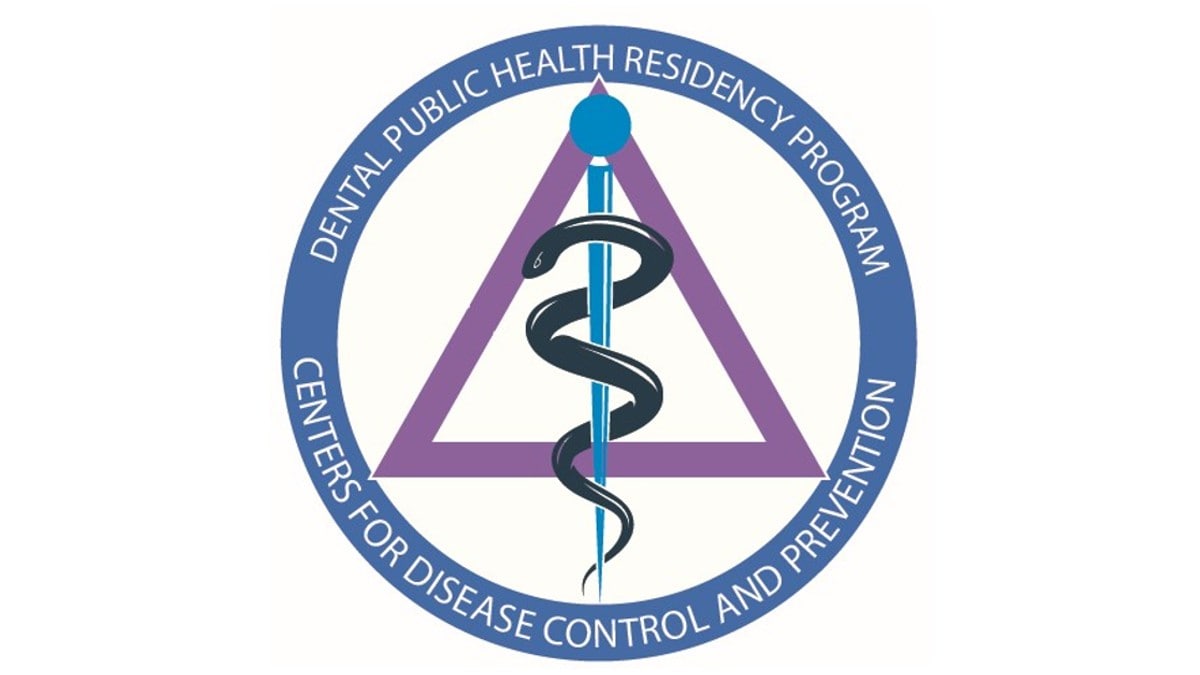Key points
- Since 1996, CDC has offered a dental public health residency training program which is accredited by the Commission on Dental Accreditation (CODA).
- The dental public health training program is for those with a dental degree (DDS or DMD) and a Master of Public Health (MPH or comparable degree).
- The Atlanta-based program starts in July of each year with full-time (12-month) or part-time (24-month) options available.

Overview
2025–2026 Application Period
The aim of the CDC Dental Public Health Residency Program (DPHR) is to produce skilled specialists in dental public health who can work collaboratively with their public health and dental colleagues in an array of health settings to achieve improved oral health for populations.
The Residency Program provides four key opportunities:
- Gain experience and skills across all ten competency areas outlined by the American Board of Dental Public Health (ABDPH).
- Gain skills in the methods of scientific inquiry and research, with an emphasis on oral health epidemiology and population-based efforts.
- Set a foundation for future examination and certification by the board.
- Start a career as a specialist in dental public health.
Residents will receive a certificate of completion meeting educational requirements established by the ABDPH for specialty certification.
Location
This program is located in Atlanta, Georgia, home of CDC's headquarters.
Number of Residency Openings
One or two qualified dentists are admitted into CDC's DPHR Program every year.
Duration
The program starts in July of each year and lasts 12 months (full-time) or 24 months (part-time).
Admission Requirements
Before starting the residency program, residents must have the following:
- A dental degree (DDS or DMD) from a U.S. dental school accredited by the Commission on Dental Accreditation or a Canadian school accredited by the Commission on Dental Accreditation of Canada.
- Applicants who are graduates of a school of dentistry outside the United States or Canada must be deemed to have equivalent education.
- Applicants who are graduates of a school of dentistry outside the United States or Canada must be deemed to have equivalent education.
- A Master of Public Health (MPH) or comparable degree from an institution in the United States accredited by an agency recognized by the U.S. Department of Education.
- Courses for the MPH or comparable degree must include biostatistics, epidemiology, health care policy and management, environmental health, and behavioral sciences.
- Courses for the MPH or comparable degree must include biostatistics, epidemiology, health care policy and management, environmental health, and behavioral sciences.
Financial Considerations
No tuition or fees are required. Stipends for residents are provided through CDC's regular fellowship program. This program is designed to encourage training for research and advancing science related to health. Currently, program stipends range from $30,000 to $66,000, depending on the resident's prior professional experience and type of training (full-time vs. part-time).
Although residents in CDC's regular fellowship program are not federal employees, they can access a wide array of training resources and experiences. Interested employees of other federal agencies, including commissioned officers in the United States Public Health Service, can discuss their circumstances with the residency director.
The Residency Training Plan
Based on prior education and experience, each resident develops an individualized training plan focused on competency objectives developed by the ABDPH. The plan addresses competencies to be developed or refined during the training program, activities designed to improve these skills, and methods or criteria for evaluating progress. An applied research project and a supervised field experience must be included in the plan.
CDC's DPHR Program is sponsored by the Division of Oral Health, within the National Center for Chronic Disease Prevention and Health Promotion (NCCDPHP). NCCDPHP offers an abundance of learning opportunities and has programs addressing the prevention and control of cancer, diabetes, heart disease, tobacco use, and more.
Residents have access to the larger CDC community of programs as well as other institutions and partner organizations to explore potential collaboration opportunities.
CDC employs professionals who can contribute their expertise during the residency (e.g., dentists, statisticians, economists, epidemiologists, social and behavioral scientists, physicians, and specialists in health policy, health communication, and evaluation). Residents also have access to CDC resources including excellent library facilities, computer services, training courses, and frequent seminars and guest lectures on public health topics.
